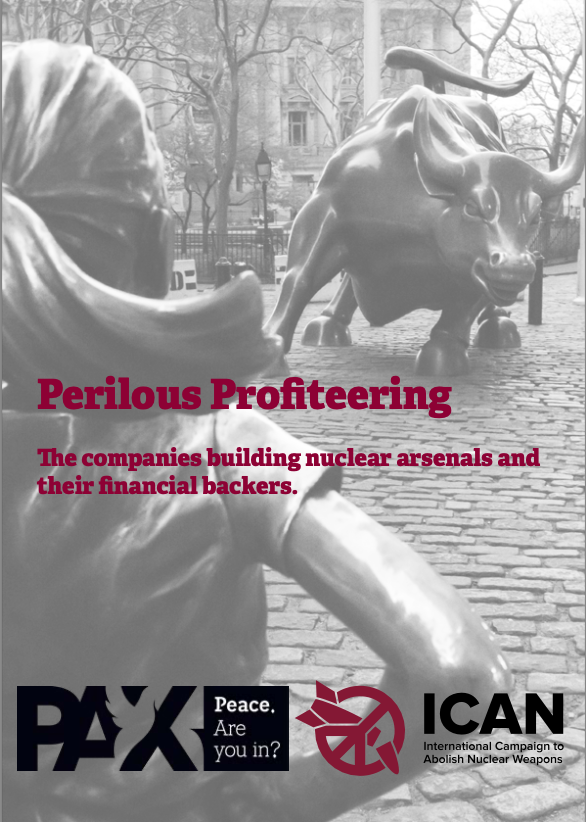The 2021 report “Perilous Profiteering: The companies building nuclear arsenals and their financial backers” is a joint publication of ICAN and it’s partner PAX. The report details how 338 financial institutions made $685 billion available to 25 nuclear weapon producing companies from China, France, India, the Russian Federation, the United Kingdom and the United States.
The data shows fewer financial institutions invest than in the previous year’s analysis, with significant drops in the shareholder values of investments in the 25 companies involved in nuclear weapon production.
The report also examined companies involved in producing, manufacturing, or developing nuclear weapons for six of the nine nuclear armed countries for which data was available. These 25 companies are involved in activities that are now illegal under the Treaty on the Prohibition of Nuclear Weapons, which entered into force in 2021. More than $200 billion in contracts were identified, though the true number is likely much higher since many companies do not publish contract details. Nuclear weapon producers from Russia and China were included in this report for the first time, as these companies are also seeking to finance debt through loans and bond-issuances and are newly engaged in the global financial marketplace.
Nuclear weapons are prohibited and the nuclear industry is changing.
While it is too early to fully assess the impact of the Treaty on the nuclear weapon industry and those who finance it, noteworthy changes to the industry have taken place. Some companies, like Serco, had long-term contracts government contracts revoked. Others, like AECOM, have chosen to end their involvement in the nuclear weapon industry. The industry itself is getting smaller, with companies acquiring or merging together. Raytheon and United Technologies are one example, Northrop Grumman’s acquisition of Orbital ATK is another. Raytheon is in the process of acquiring Aerojet Rocketdyne, which will further shrink the industry.
The reduction in the number of contractors in the nuclear weapon industry makes it easier for financial institutions and other investors to exclude them from investments. Instead of tracking down hundreds, or even thousands of contributors to catastrophic threats, it’s simply a matter of exiting a few relationships.
More than 100 financial institutions divested from the nuclear weapon industry in the last year. Several of these are from states that joined the TPNW. This includes the Bank of Ireland and AIB (Ireland), and Investec (South Africa). While other institutions made new investments, these are predominantly from countries not yet a member of the TPNW.
This report puts the spotlight on companies and their financial backers that are making weapons designed to cause massive civilian casualties and violate the rules of war. These companies, and the contracts they accept, are part of the nuclear weapons problem. Avoiding business with these companies is a way for others to become part of the solution.

